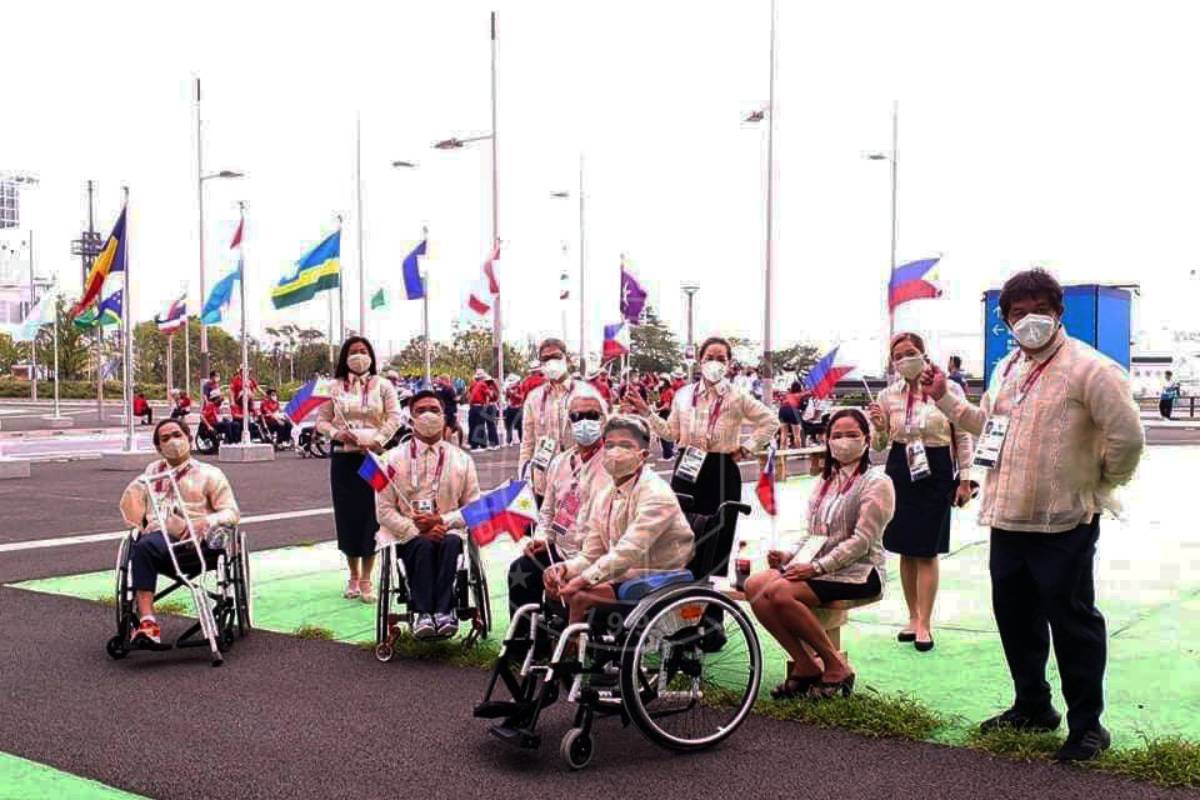
TOKYO – A confluence of events beyond anybody’s control due to the COVID-19 pandemic led largely to the lackluster Philippine campaign in the Tokyo Paralympic Games here, according to Philippine Paralympic Committee president Mike Barredo.
“While we went through the exercise in participating in the Paralympic Games, we were affected by the circumstances of COVID-19 in the areas of training, preparation, and actual participation. We were pretty much hit by it,” Barredo said on Saturday on the eve of the closing of the quadrennial meet.
The last national team that saw action in 2016 Rio de Janeiro Paralympics in Brazil emerged with a bronze medal courtesy of the late table tennis player Josephine Medina, who passed away last Thursday in her Marikina residence.
He pointed out that powerlifter and 2012 London Paralympic veteran Achelle Guion and her coach, Tony Taguibao and national team chef de mission Kiko Diaz tested positive for the virus days before they were to depart for Tokyo.
Then discus thrower Jeanette Aceveda and para-athletic coach Bernard Buen, who were fully vaccinated, both had the bug in tests here and had to be quarantined, depriving Aceveda the chance of being the first visually impaired Filipino athlete to compete in the Games.
The last blow was when taekwondo jin Allain Ganapin also tested positive, forcing the athlete and his coach Dindo Simpao to stay in Manila, he said of that campaign that was fully supported by the Philippine Sports Commission.
“Three of our original six Paralympians were unable to compete. Our hearts truly go out for them,” Barredo said.
“We were all shell shocked (by these developments). So, it is really very hard to give an honest assessment given these difficult conditions and circumstances. This edition is for the books,” added the PPC chief.
“We don’t know what would have happened had Jinky (Guion’s nickname), Jeanette, and Allain been able to compete here. Our hearts really go out for them.”
The PPC chief speculated that some members of the PH contingent may have been victims of the highly transmissible delta variant that has caused the alarming rise of infections back home and in the Japanese capital “but we will truly never know, which is truly frustrating.”
He paid tribute to swimmers Ernie Gawilan, Gary Bejino and wheelchair racer Jerrold Mangliwan “for giving their best under these trying circumstances. I believe Ernie and Jerrold did pretty well while Gary is still a greenhorn who can strive to do better in future international competitions.”
Both Rio Paralympic veterans, Gawilan and Mangliwan gave the Philippines its finest moment here last Sunday in posting personal bests to place sixth in the finals of the men’s 400-meter freestyle-S7 event and men’s 1,500-meter-T52 race, respectively.
Sharing the sentiments of athletic coach Joel Deriada and swimming mentor Tony Ong, Barredo said perhaps it was time for the government and private sector to chip in setting up a permanent and regular facility for the country’s national para-athletes.
“We already had a semblance of it at the ULTRA (now renamed as the Philsports Complex) in Pasig city, but it was unfortunate that it was converted into a quarantine facility by the government, so we virtually lost a year’s training in 2020,” he stressed.
He said that he visited Beijing, China some years ago and was shown by Chinese sports officials the facility that was exclusively being used by its national para-athletes.
“This is why the Chinese have been dominating the Paralympics since the 2004 edition in Athens.” As of noon Saturday, China reigned supreme in the overall standings with 87 gold, 53 silver, and 48 bronze medals, way ahead of runner-up Great Britain (40-36-17) and third placer US (35-35-27).


0 Comments